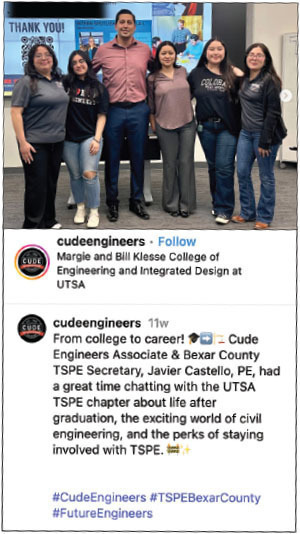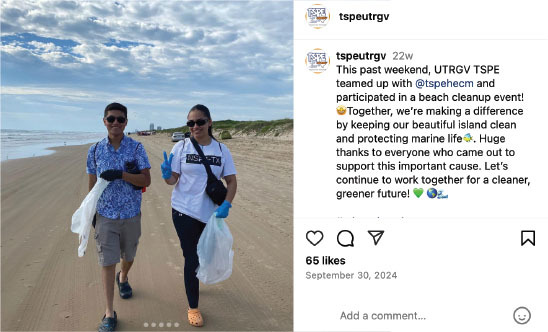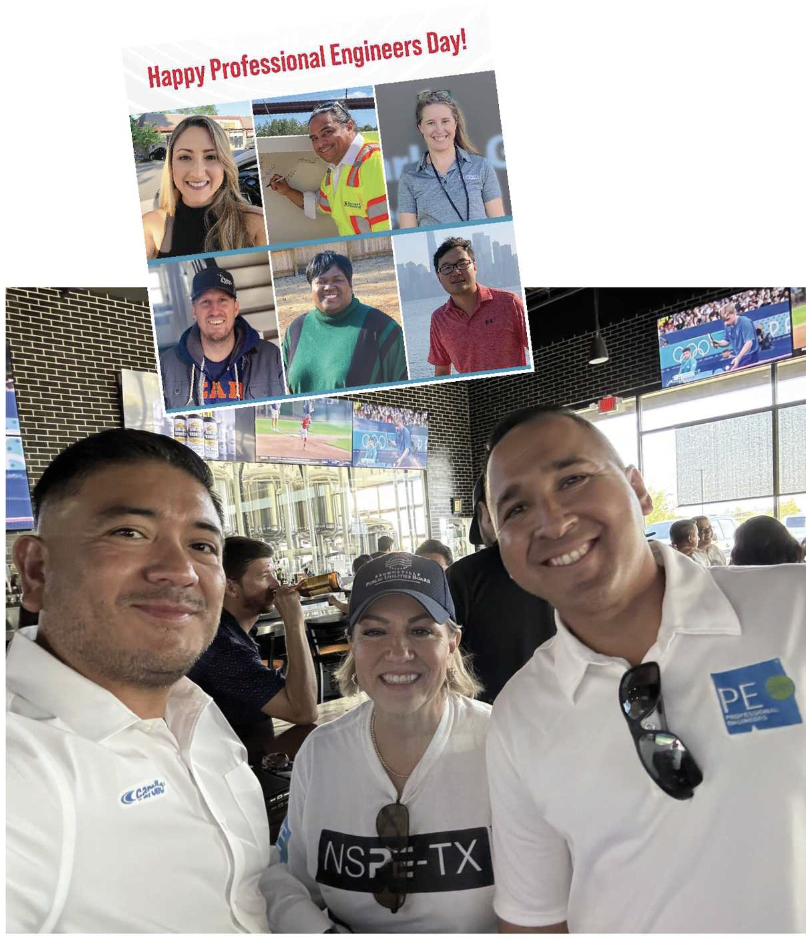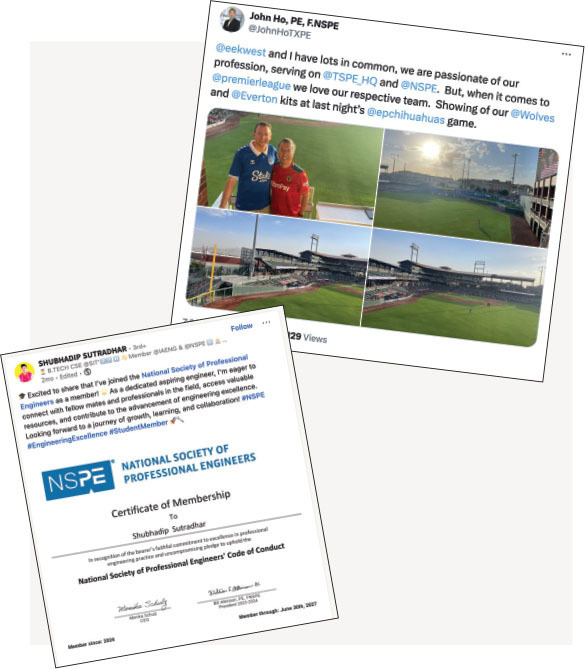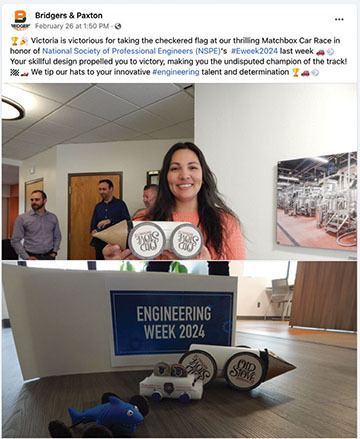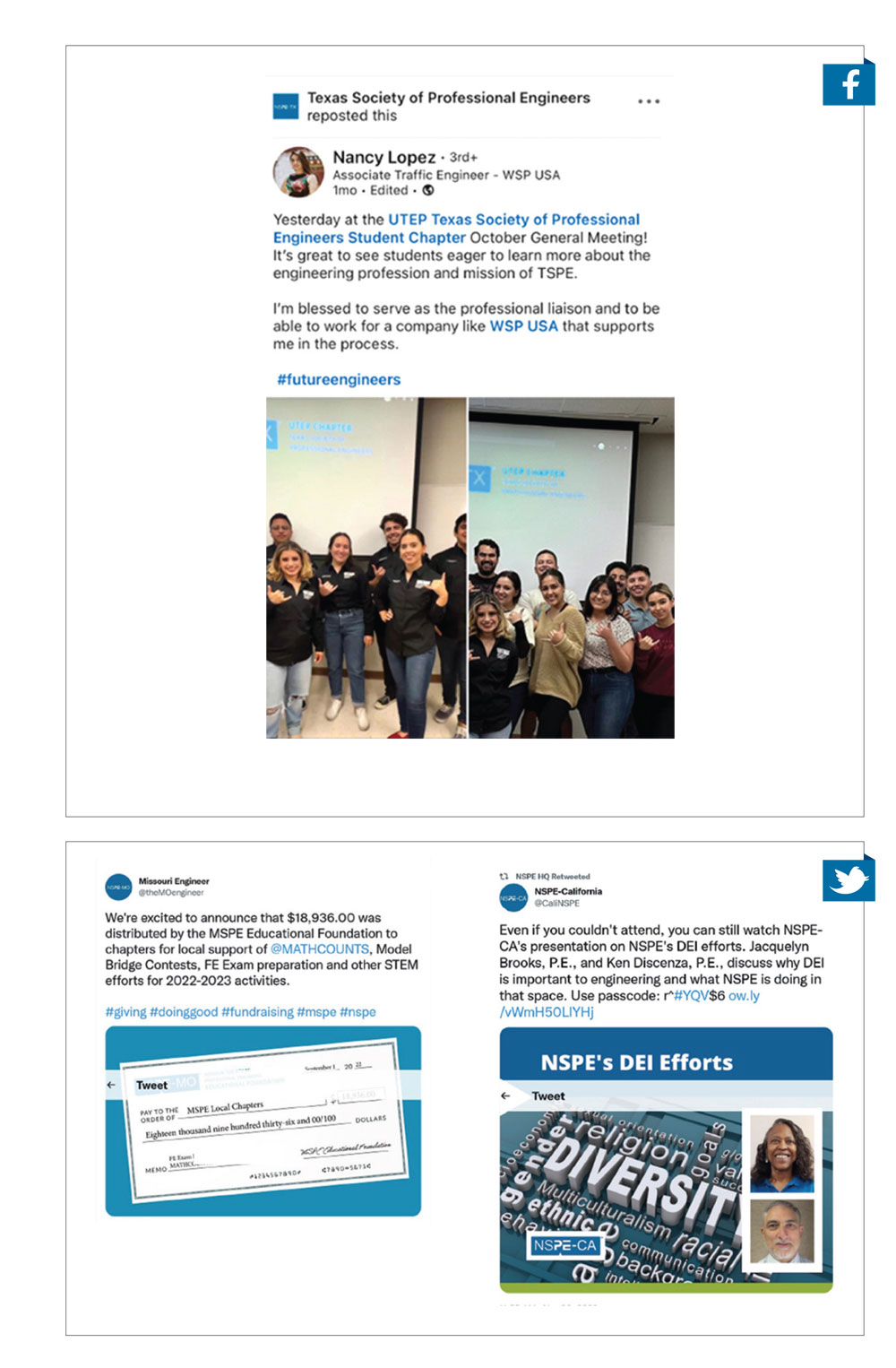January/February 2017
You Said It
No longer is the letter to the editor the only way NSPE members can share their views with others. Take a look, and join the conversation.
The following discussions can be found at NSPE Communities.
Lifelong Learning
How do you approach or consider the fulfillment of your continuing education requirements?
I agree with continuing education requirements. I have been licensed since 1980 and am now licensed in 14 other states. Yes, it doesn’t hurt to knock off the rust on some things I haven’t done in some time. And NSPE has great courses on ethics that are free to members. But as the years pass I find it difficult to find courses in my field (electrical) that I either have not already taken or are in areas of interest to me.
The varying requirements are just enough different in many states, which is often quite frustrating. My home state (NC) accepts CE credit in the engineer’s home state, even if different from that in NC. Mississippi exempts CE requirements for engineers over 60 years old. But some states are quite strict in what they will accept. I certainly wish states could coordinate CE requirements to make it a little easier for those of us who are licensed in multiple states.
John Dagenhart, P.E.
Durham, NC
I am sure the greater majority of us believe continuing education is required of us throughout our career, but I disagree on the requirement that it shall be mandatory and fixed to a set of standards dictated by each state.
That is telling us that we, as professionals, are not capable of determining what it takes for us to succeed in our profession by ourselves. We have to be told what to do or risk possible loss of license for not complying.
John Pollack, P.E.
Cleburne, TX
I expanded the breadth of my knowledge, which made me more valuable overall. Knowing a little bit about everything helps you meet your project and personal goals, and expands your sphere of influence. In the meantime, do not neglect your depth of knowledge on day-to-day subjects. Finding a balance is the difficult part.
Donald L. Phillips, Jr., P.E.
Worthington, OH
PEs in Industry
Are PEs required where you work? What resources does your employer provide to become licensed?
I have worked in the oil and gas field since graduating from college 20 years ago. Given the industrial exemption, engineers are not required to have a PE license. However, I have found that many engineers do have their PE license. I was fortunate to have a manager early in my career encourage me to obtain my PE license after the required years of experience. I have not regretted obtaining my license and have encouraged other younger engineers to obtain their license.
Most oil and gas companies need the assistance of engineering firms to prepare design drawings for new infrastructure construction projects (pipelines, facilities, etc.) and require that the engineering firms have PEs stamp the appropriate drawings and reports.
Even though not currently required under the industrial exemption, I highly recommend all engineers obtain their professional engineer license. At some point in your career, you may be invited to work in a consulting role or as an expert witness that requires a professional engineer license. Also, given the job uncertainty in many industries, including oil and gas, a professional engineer license provides a job safety net in that you can always start your own engineering or consulting practice in your area of technical competence if you are downsized, rightsized, or laid off.
J. Kevin Cooper, P.E., F.NSPE
Bixby, OK
I do electronics design for companies that fall under the exemption and there is no requirement for me to have a PE. Some companies have gone so far as to actively discourage it. I do expert witness work and have been told I need to be a subject matter expert but do not need a PE.
With that being said if you go into a courtroom it is quicker and easier to be accepted if you have the PE credentials. While existing PE exams do not match what the bulk of my work, I am more flexible because of it covering a much broader scope than my traditional work. It made getting the license harder, which discourages many from trying, but I think it is valuable to me and will only get more valuable as a differentiation in the future.
Larry G. Nelson Sr., P.E.
Webster, MA
 American Society of Plumbing Engineers
American Society of Plumbing Engineers
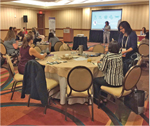 Michael Aitken
Michael Aitken
@michaelaitken64
Oct 28
@NSPE Vice President attending ASPE Conference.
Congratulations Women of ASPE for your 1st Women of ASPE Leadership Forum.
Don’t miss out on the discussion in NSPE’s online Communities for professional engineers. Engage with your peers on issues of professional importance. Visit https://community.nspe.org.
Join the Conversation
There’s no shortage of ways to connect with the Society as well as other members. NSPE’s Communities, Twitter, Facebook, LinkedIn, and Instagram all help you make that connection. Or you can write a letter or send an e-mail to the address below.
On this page, we’ll show you some highlights of what people are saying. Keep in mind, however, that the views expressed are those of the author and do not necessarily represent the views of and should not be attributable to the National Society of Professional Engineers.


 Volunteering at NSPE is a great opportunity to grow your professional network and connect with other leaders in the field.
Volunteering at NSPE is a great opportunity to grow your professional network and connect with other leaders in the field. The National Society of Professional Engineers (NSPE) encourages you to explore the resources to cast your vote on election day:
The National Society of Professional Engineers (NSPE) encourages you to explore the resources to cast your vote on election day: